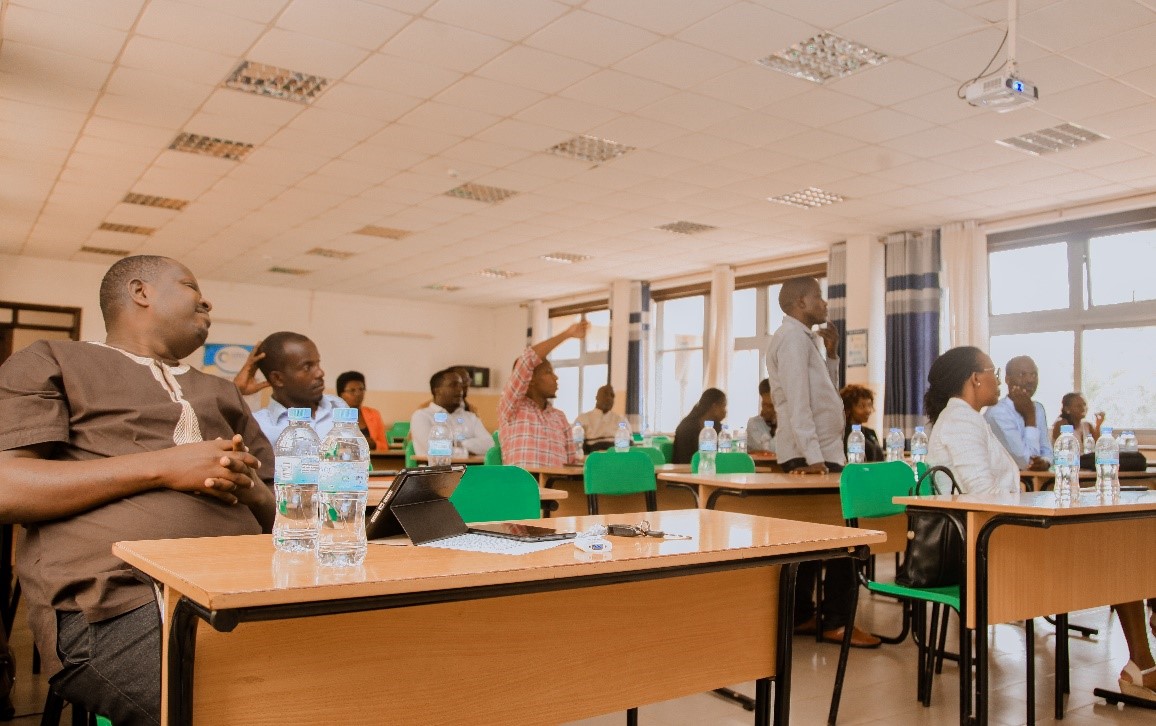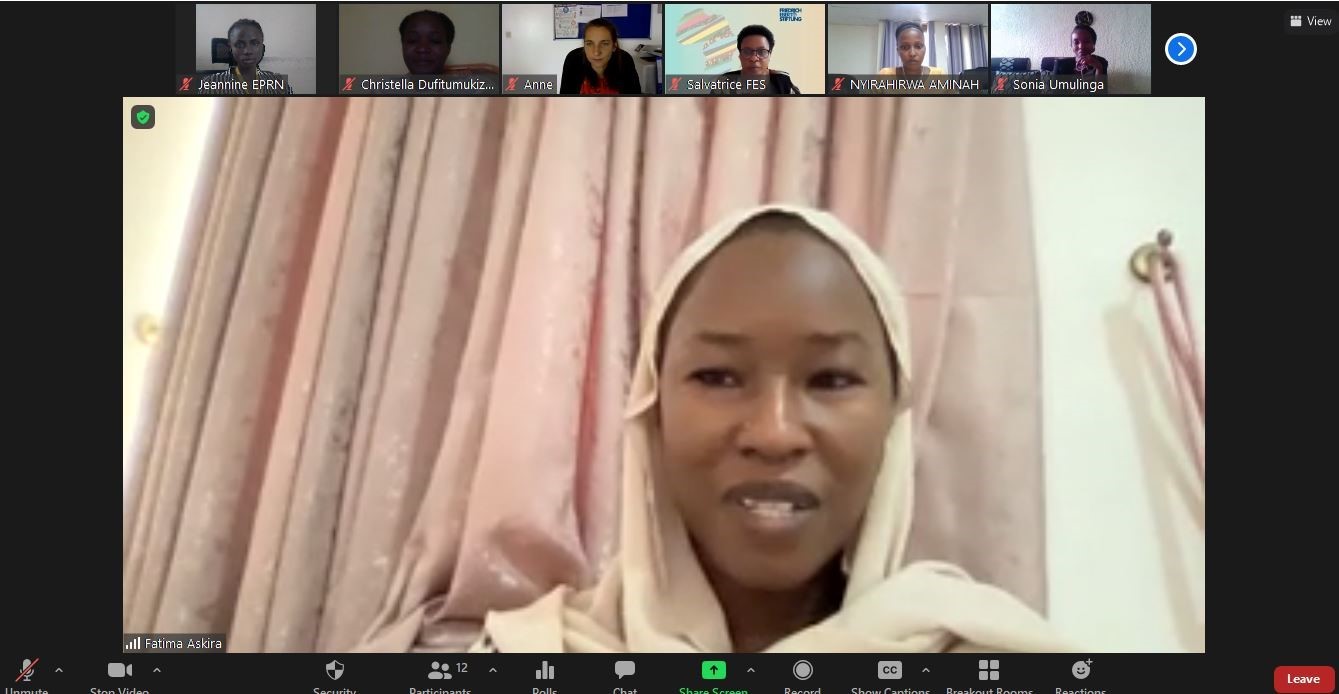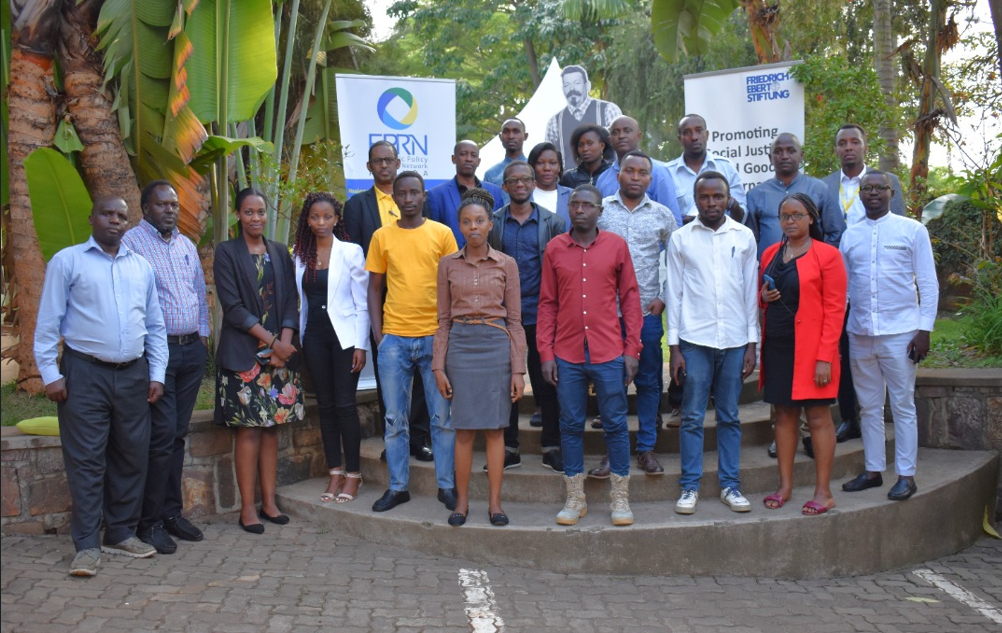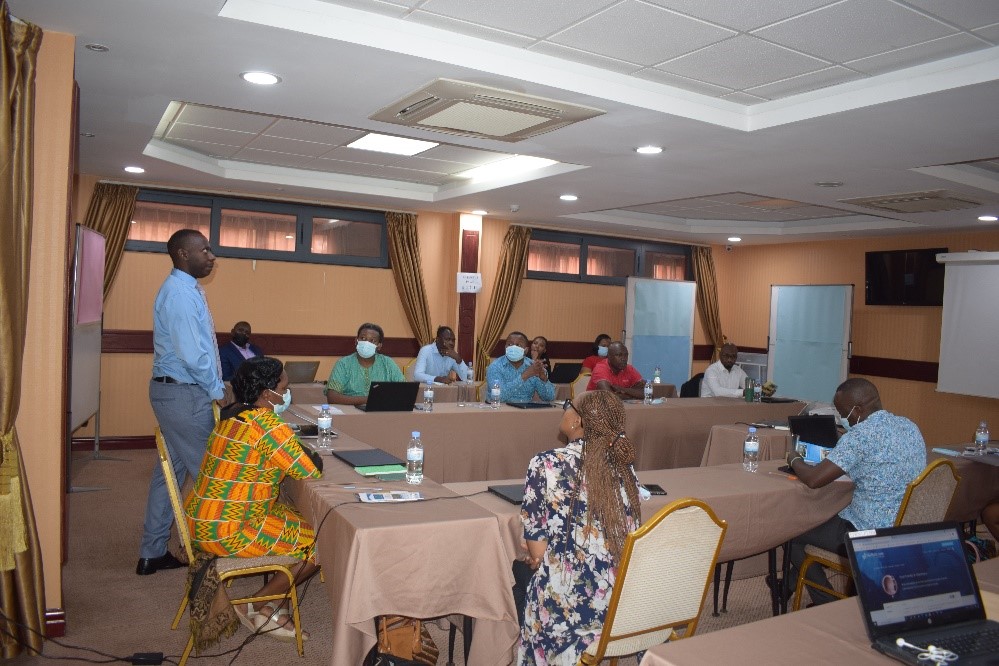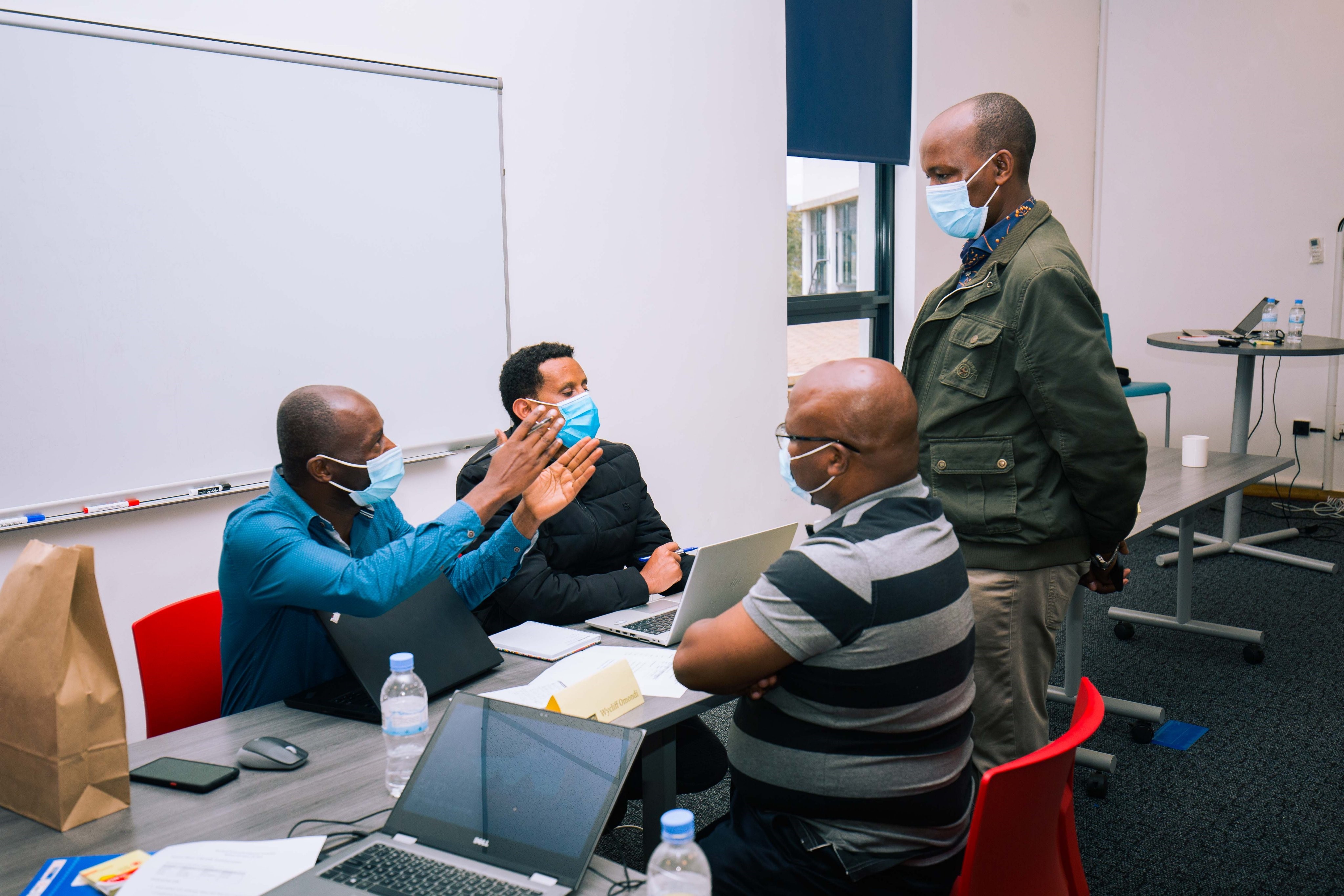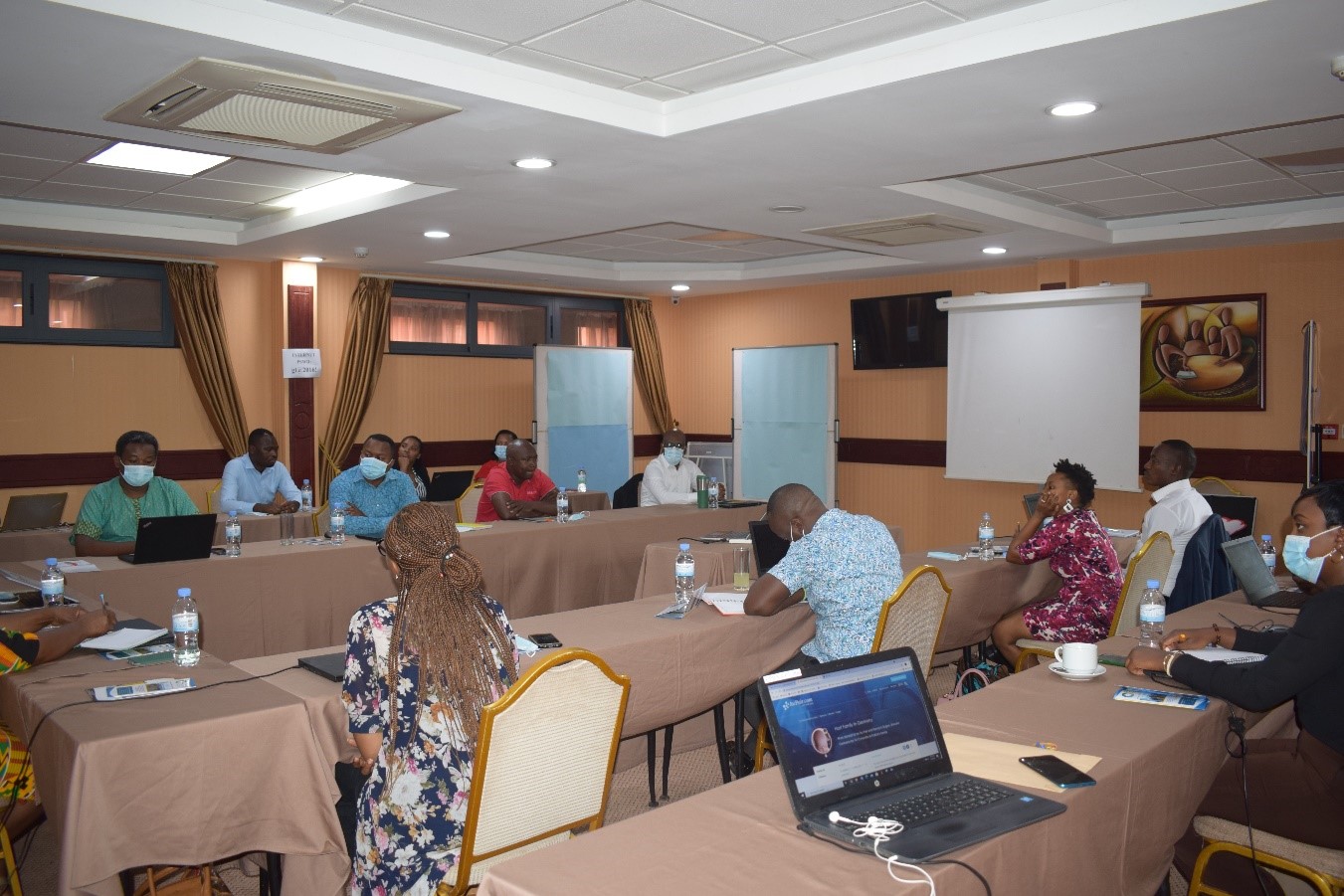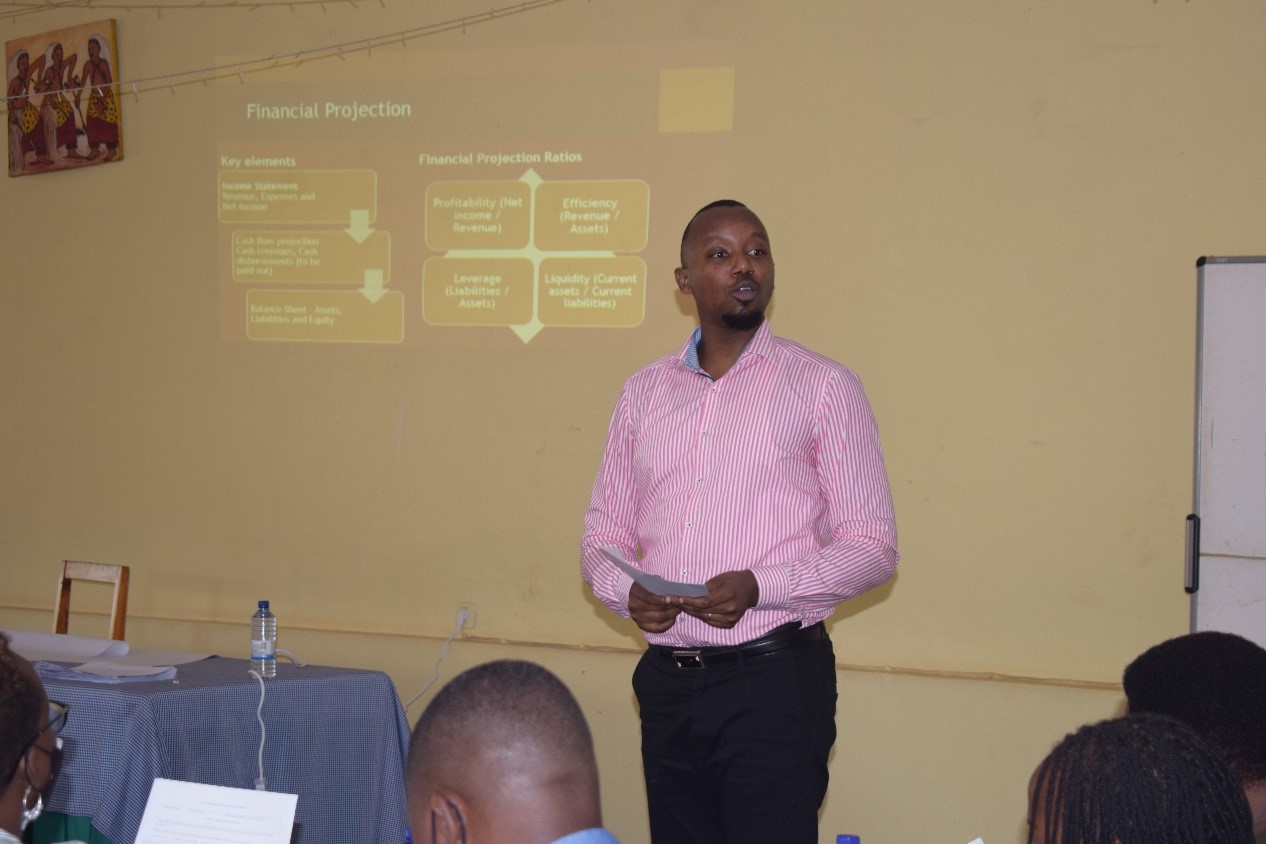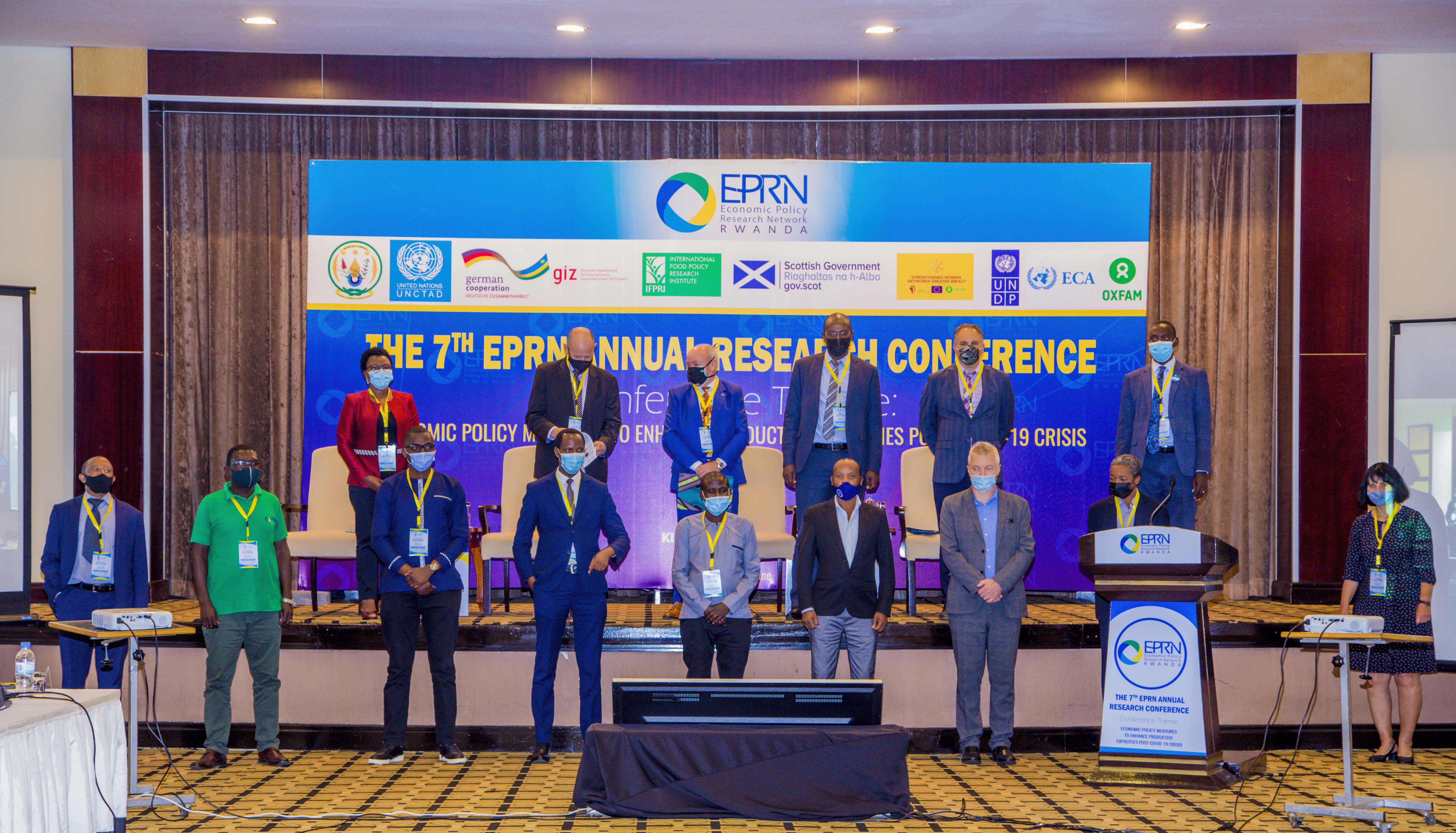The Pandenomics of COVID-19
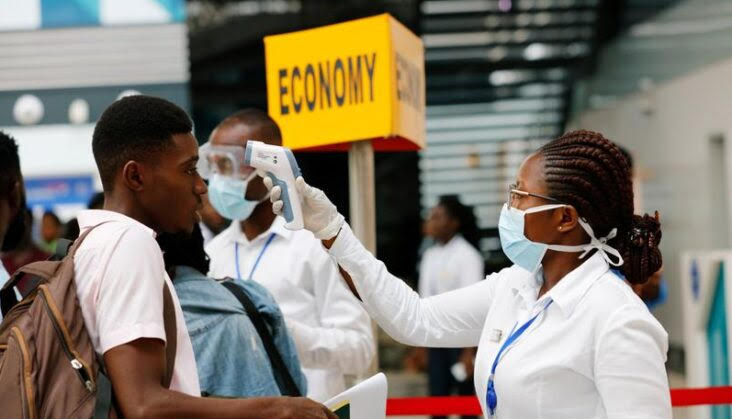
By Vumi Kacheche, Associate Researcher – EPRN Rwanda.
The current COVID-19 pandemic is igniting everything and everyone in a heated-up turmoil. The last time the world experienced such a tremor was in 2008 during the financial crisis and suffice to say banks were pronounced culprits. One could say though, it is starting to feel like 2008, but rather on another level, with a rather different background and far from banks.
By now, we are all basically well conversant with what COVID-19 is all about - more or less and, felt its blow in one way or the other. Infections of the respiratory disease are spreading at earth-breaking speed all around the world. Death tolls are mounting, although, recoveries are in sight too. It is becoming difficult to keep up with numbers, be it of new infections or fatalities. They are changing drastically. That said, the last I checked, recorded infections and fatalities stood at over 487000 and over 22000 respectively around the world. In this regard, China and Italy have been so far hit the hardest.
Beyond that, individuals, businesses, health workers and Governments are tiptoeing to the disastrous consequences of the pandemic and none is certain of where this is going. But, one thing is certain, the preparedness is shacky. As such, the pandemic has triggered social woes, sparked political tensions and is spiraling us into economic hardships, signaling a recession and the concomitant depression.
A lot is being done to overcome the pandemic as well as minimize the perils of its economic consequences. Question is though, what is “a lot” and, is it enough ? And at what cost ?
The most important aspect of stopping the virus from spreading is social distancing and this is what Governments and local authorities are enforcing through lockdowns, in form of movement restrictions. Ironically, Governments, institutions and individuals that condemned China for carrying out massive lockdowns at the beginning of this mess, are now busy struggling to enforce the same thing. That is not to say that China didn’t have its flaws in dealing with the virus but let us talk about that next time.
Other measures include continuous sensitization on handwashing, protective coughing and sneezing, timely testing among others. Also, heads of states have taken series of national address in a bid to emphasize on measures, give masses hope and calm them down to avoid the looming panic. But in a way, these communiques aren’t really devoid of sparking the same panic they are meant to contain.
Amid these efforts, one challenge stands out. While the rest of us are busy scrambling for food stuff and hygiene material like toilet papers Governments are in for Medical kits shopping such as gloves, ventilators, masks, testing machines etc. Surely, our shopping malls cannot be the same. Getting hands on medical kits needed for dealing with COVID-19 is an uphill task. This is a scarce commodity for Governments vis a vis the demand. Without them, there is a high risk for rampant spread of the virus and the likely failure to contain the virus. The issue is alarming that it has compelled proponents of free trade to deliberately overstep World Trade Organization (WTO) rules by indulging in limiting export of COVID-19 medical kits. Obviously, national interests are starting to matter, causing stains on the international trade fabric. The argument could be that it is a mechanism of limiting the export to only countries that might need kits the most rather than those that might afford them most. But hey, who knows.
The issue has even taken a notch higher that protective supplies ordered by some countries have disappeared in this air while in transit. For example, 6 million masks headed to Germany under the order of the Germany military were reported to have disappeared at airport in Kenya
The economy has taken a fair share of the pandemic as well. This worries every entity in society at all levels. Aside the detrimental health consequences, there are major economic disturbances. Financial markets are in jaw-breaking free fall, businesses (goods and services) halted, consumer spending significantly de-accelerated, export and trade hindered, investment and supply chains constrained, so on and so forth.
Many African countries that mainly depend say on tourism and export commodities, the pandemic pauses major threats like limited foreign currency, lost government revenues, millions of jobs and forces GDP to drop. Consequently, the deficiency of foreign currency might spur a depreciation and further lead to inflation. Additionally, a lot of countries in Africa still depend on external funding. The economic disruptions of the pandemic will make these external financing more costly. Therefore, the need for diversifying financing sources for Governments cannot be over emphasized. To start with domestic financial resource mobilization and robust macro-economic and fiscal measures.
For businesses, the dire situation caused by COVID-19 questions their survival. With dysfunctional supply chains and decreased consumer spending, companies are cutting back on production, scaling down on investment, laying off workers and preparing to soak in losses.
For companies that depend on oil products like the transport industry, you might say that they stand to benefit from the plunged oil prices. But, that will have to wait until the pandemic has weathered. For any oil price shock, the accrued net gains either in favor of producers or consumers is an argument. For example, during the 1970s oil crisis, Saudi Arabia and Russia made hefty sums of profits while companies in the west suffered the cost. But COVID-19 makes the story different in that there aren’t really much of net gains to be talked about, thanks to social distancing and other measures that come with combating the spread of the virus – constrained demand.
Aside businesses, workers, most especially the low-income earners (both on wage or monthly basis) and/or the very poor in society, the pinch goes even deeper. For them the situation is a multiple-edged sword and the crisis suffocates their well-being easily and quickly compared to the relatively well-off (high- and middle-income groups). This can be easily observed by the distinguished wish-lists of the two groups as we face lockdowns ; one piled up with basic needs or necessities like food and clean drinking water and another piled up with what could be “wants” but turned into “needs” like walking a pet , watching a movie, shopping my favorite shoe brand or nail polish, having a coffee with a friend at my favorite spot. Surely, the latter list can wait a little bit longer but not the former.
Job losses have become inevitable. Losing a job for an unspecified period might not sound worrying because you feel in control to hop on the next one. The odds flip though in these corona times when the virus, not you, is in control. That is, instead of running around in search for new employment, you are busy social distancing if not battling COVID-19 at the hospital. Truth is, the virus has emptied our streets and work places and crowded hospitals. In some parts of the world, unemployment benefits and jobless claims have reached record high and still counting. But what of the millions jobless folks in many countries where such social safety systems are non-existent or vanishingly small to support household utilities and basic costs ?
As the situation gets worse, consumer goods prices such as food stuff, will go up, thanks to panic buying, hoarding. etc. This has already happened in some parts of EastAfrica but governments have rose up to the occasion enforced some controls. Wage earners (not on monthly pay roll) – known as Nyakabizi in Kinyarwanda and low-income earners make the majority in many African societies. For such groups, their marginal propensity to consume tends to outweigh the marginal propensity to save. In simple terms, a bigger portion of change in income is spent on consumption instead of saving. With dwindling savings, to it becomes difficult to maintain a basic living. Times like these, where the pandemic shows no mercy – they are mostly financially insecure and vulnerable to dire well-being. In fact, the ominous well-being limits their access to required hygiene necessary for basic health conditions, that further exposes them to risky healthy conditions and are likely to succumb to severe infections like COVID-19. It is not uncommon that without promising interventions or support in sight, people might resort to dubious undertakings in pursuit of survival means. In other words, this instigates crime in society such as robbery, looting etc. Cases of such undertakings have been reported in Uganda already.
There is more to add on the socio-economic hardships of the less privileged in society owing to this pandemic. But I am afraid I might forget the measures that ought to be taken to soften the blow as well as what these difficult times might teach us.
So, what should be done ? You wonder. Well, there should be some monetary and fiscal stimulus measures for us in stock.
Through Governments, central banks are deploying various monetary policy measures to pump money in the economy to keep economic activities running. In many developed economies, interest rates are taking a race to the bottom. For example, not long ago, the FED in the US slashed rates to almost zero (between 0% - 0.25%), the lowest since the 2008 financial crisis. Many other countries like Australia, New Zealand, South Korea, are taking a similar trend in abid to keep a smooth flow of credit to businesses and households.
Similarly, central banks have gone ahead to avail emergency lending to banks via discount windows at almost zero rates. Furthermore, central banks have resorted to massive quantitative easing in form of asset purchase like treasury and security-backed mortgages, lowered reserve requirements, restructured outstanding loan terms and many more to redeem the economy from the pandemic derails.
For example, the central bank of Ghana besides cutting rates, lowered reserve requirements for banks and lowered mobile money transfer costs while the national bank of Rwanda introduced an extended lending facility to banks and advised commercial banks to restructure outstanding loan for customers hit-hard by the pandemic.
The problem with such multiple stimulus policies in a short time period though, at least as far as some big economies have taken it, is that they instill a sense of fear in economic actors that central banks might run out of ammunitions to prevent the likely recession due to the pandemic.
I wouldn’t wonder if one had to question whether some of these tools are the appropriate tools given the unpreparedness and the nature of the economic shock. Clearly, economies are facing more a demand shock than supply shock and it requires no economics qualifications to see this. Okay, may be the basics, which brings me to the next stimulus measure and probably the most suited for the current economic turmoil due to the pandemic : Fiscal stimulus.
If we agree that the demand shock has strangled economies more than supply, then you know where I am going with this. It is paramount to provide fiscal stimulus in form of unemployment benefits, direct pay outs to hard-hit societies, offer handouts among others to boost aggregate demand. More importantly, spending on hospitals to ensure they are equipped to deal with the pandemic. Already millions have lost jobs and faced salary reductions which gravely affects their spending power. To me, demand-stimulating measures should be given emphasis first because supply-stimulating measures will not help much at this stage when workers in various businesses ; industries and elsewhere are bound to social distancing to keep the virus at bay or in hospitals agonized by the virus.
Demand boosting-stimulus have rather an immediate effect on spending, sustaining basic services and keeping up with life as we buy our selves some time to cast away the invisible enemy.
For many, say in lots of African countries, rate cuts do not directly translate in to access to credit due to other stringent requirements and conditions such as collateral. Therefore, even with lower rates, the thought of hectic and cumbersome loan processing procedures and requirements deter many from benefiting from such measures. I believe the most important thing, given the status quo, is to fight the virus by social distancing and taking all the healthy measures like hand washing very seriously and not taking any risks. Additionally, maintain spending abilities or aid to those in need of basic amenities as a result of the pandemic to stay afloat the economic hardships.
In some places, some individuals and groups have joined efforts in solidarity to support those most economically vulnerable in society to afford a healthy and basic living because clearly our social safety net apparatus are habitually not ready for this. Yes, this will pass. But before, it does, and we resume our long-missed mass production and its devastations, let us take care of the basics for all, if we really care beyond ourselves. Keeping in mind to social distance.
But hey, cheer up. By all means, we needn’t to be gloomy. As we prepare to expect the worst, we should also hope for the best. Besides, digitalization has not lost it all in this. It has a good shot on improvements and room for booming for the great of good and for all – I hope. In the meantime, mother nature recovers the relentless choke of human interference. Could be that this draws us closer to achieving CO2 emissions target and combating climate and its effects on our planet– sort of an equalizer. That is not all that is good about this situation. The handwashing practice might finally stick with us as a normal and intuitive behavior for the great of a wide range of health benefits beyond COVID-19.
Also, now that many African politicians are forced to test wrecked domestic health care facilities instead of flooding western hospitals once ill due to boarder lock down, perhaps they have a reason enough to improve domestic facilities.
Generally, this pandemic is a wake-up call to improve health care systems around the world. So, you can at least be happy that if you survive this, you will not have to worry about health care anymore. There is hope it will not be much of an issue. Don’t take my word for it though. The next item in check is our existing social safety system, which, not for once, has been proven to be weak and not inclusive. Hopefully this is time round we can, without fail, comprehend and rise to action. Last but not least, the community/family cohesion as result of the unavoidable lock down promises family bonding, deeper understanding of those close to us and appreciating the value of social connectedness. With that, you can at least put on a smile.






